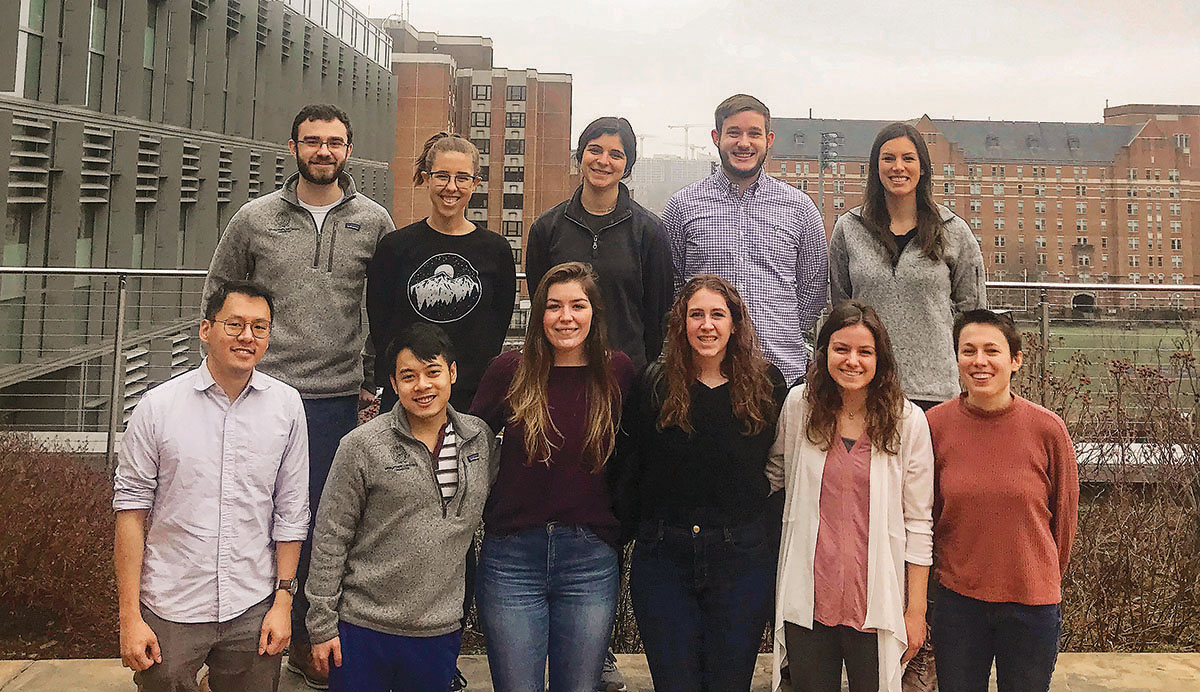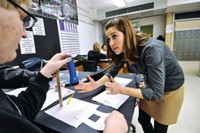Advertisement
Grab your lab coat. Let's get started
Welcome!
Welcome!
Create an account below to get 6 C&EN articles per month, receive newsletters and more - all free.
It seems this is your first time logging in online. Please enter the following information to continue.
As an ACS member you automatically get access to this site. All we need is few more details to create your reading experience.
Not you? Sign in with a different account.
Not you? Sign in with a different account.
ERROR 1
ERROR 1
ERROR 2
ERROR 2
ERROR 2
ERROR 2
ERROR 2
Password and Confirm password must match.
If you have an ACS member number, please enter it here so we can link this account to your membership. (optional)
ERROR 2
ACS values your privacy. By submitting your information, you are gaining access to C&EN and subscribing to our weekly newsletter. We use the information you provide to make your reading experience better, and we will never sell your data to third party members.
Policy
Encouraging Classroom Help
September 16, 2013
| A version of this story appeared in
Volume 91, Issue 37
As a chemistry teacher entering my 29th year of service, I feel a responsibility to reply to Arthur Bradley’s letter (C&EN, Aug. 19, page 2).
I applaud his spirit and his drive to engage both our current crop of chemistry students and their teachers. I am sure that he has something special to offer, and he is right in citing the goals of such an interaction as well as some of the hurdles. ACS should continue to encourage this type of outreach.
Chemists unfamiliar with the daily world of academe below the university level should keep in mind some important facts of life there: Most important, as secondary teachers, we are responsible for minors. That means that any guest in the classroom must be supervised, and permission slips may be involved. Also, a seemingly little thing like a school bus schedule, an athletic event, or an unannounced assembly can cause a great disruption to activities planned for guest educators.
Guests should also understand that secondary-level teachers typically teach multiple distinct courses with five contact hours with students daily. Any one group of students is with us for only a small window of time. What’s more, we typically do not have access to telephones, other than our cell phones, and we certainly don’t have a secretary to help make arrangements while we are in class.
That said, it is shameful that the school Bradley contacted did not bother to thank him and acknowledge his interest. But he should choose another school. There are many of us teachers out there who would welcome his energy and experience. I have had dozens of speakers and guest educators over the years, and every one of them added something important to the classroom.
William R. Smith
Bensalem, Pa.
I am surprised and disappointed to learn that Bradley received no response to his offer to help chemistry teachers at his local high school. Generally, schools and science teachers are grateful for the help that professional scientists can provide. Bradley’s experience is the exception rather than the rule. Many retired scientists and engineers volunteer to help science teachers at the elementary and secondary school levels through various nonprofit organizations established around the U.S. The American Association for the Advancement of Science maintains a list of many of these volunteer organizations: www.aaas.org/programs/education/SSE.
My experience working as a volunteer at a middle school in San Jose, Calif., for the past seven years has been extremely rewarding. I am associated with TOPS (Teaching Opportunities for Partners in Science) of Santa Clara Valley (www.topsofscv.org), and we have more schools asking for help than volunteers to fill the requests. The recently established ACS Science Coaches program is another way that chemists can help in schools. I hope that other chemists will not be discouraged by Bradley’s experience, because schools and teachers really do need our help.
Joseph A. Castellano
San Jose, Calif.




Join the conversation
Contact the reporter
Submit a Letter to the Editor for publication
Engage with us on Twitter